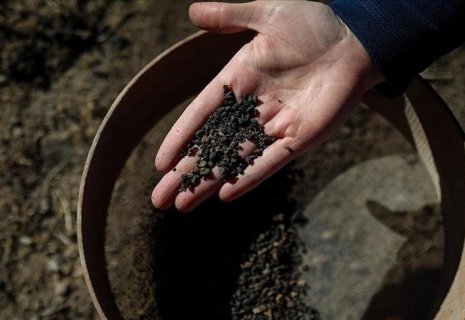
Romania now has 15 EU-recognized traditional products
The Official Journal of the European Union published the Commission Implementing Regulation (EU) 2025/2259 on the registration of the geographical indication 'Carnati din topor din Valcea' (PGI), this being the 15th Romanian product recognised and registered at European level, a Ministry of Agriculture and Rural Development (MADR) release informed.
The other 14 Romanian products recognised and registered at European level are: Magiun de prune de Topoloveni (Protected Geographical Indication - PGI), Salam de Sibiu (PGI), Novac afumat din Tara Barsei (PGI), Scrumbie afumata de Dunare (PGI), Telemea de Sibiu (PGI), Carnati de Plescoi (PGI), Cascaval de Saveni (PGI), Salata cu icre de stiuca de Tulcea (PGI), Telemea de Ibanesti (Protected Designation of Origin - PDO), Salata traditionala cu icre de crap (Traditional Speciality Guaranteed - TSG), Placinta dobrogeana (PGI), Pita de Pecica (PGI), Salinate de Turda (PGI) and Sardeluta marinata fabricata potrivit traditiei din Romania (TSG), CE Report quotes AGERPRES.
Currently, Romania has four products under verification at the European Commission level for obtaining Protected Geographical Indication (PGI) status: Babic de Buzau, Branza framantata de Teaca, Salam Poiana Marului and Bere Sadu, while Batog de sturion is in the European opposition phase for obtaining Protected Geographical Indication.
'The name 'Carnati din topor din Valcea - PGI' obtained protection under the Protected Geographical Indication (PGI) quality scheme based on the Regulation (EU) 2024/1143 of the European Parliament and of the Council of 11 April 2024 on geographical indications for wine, spirit drinks and agricultural products, as well as traditional specialities guaranteed and optional quality terms for agricultural products, amending Regulations (EU) No 1308/2013, (EU) 2019/787 and (EU) 2019/1753 and repealing Regulation (EU) No 1151/2012,' the MADR stated.
Protected Geographical Indication (PGI) emphasises the relationship between the specific geographic region and the name of the product, where a particular quality, reputation or other characteristic is essentially attributable to its geographical origin. In order to benefit from this quality label, at least one of the stages of production, processing or preparation must take place in the region.
'Carnati din topor din Valcea' - PGI are pork sausages smoked with beech wood, of irregular cylindrical shape, and cased in a natural casing (pork gut). The 'Carnatii din topor din Valcea' PGI are made up of 80 % meat and 20 % fat chopped (shredded) with a cleaver, resulting in relatively large cubes/pieces of meat and fat of up to 12 mm. The taste and tenderness obtained from salting/curing the meat with Ocnele Mari salt are complemented by the flavour of the spices and the specific smoky taste from the use of beech wood, which distinguishes 'Carnati din topor din Valcea' from other types of smoked sausages, in terms of both the method of preparation and the product's characteristics.
All specific stages of the production process for 'Carnati din topor din Valcea - PGI' take place within the defined geographical area comprises the following administrative territorial units: Mihaesti, Ocnele Mari, Francesti, Popesti, Roesti, Lapusata, and Rosiile in Valcea County.
The application to register the name 'Carnati din topor din Valcea' PGI is based on the reputation and distinctive characteristics of the product, such as the use of salt from the Ocnele Mari salt mine to cure the meat and the double hardwood-smoking of the sausages.
The application for registration to obtain the PGI protection for the name 'Carnati din topor din Valcea - PGI' was submitted to the Ministry of Agriculture and Rural Development (MADR) by the applicant group called the Traditional Producers, Craftsmen and Artisans Association from Valcea.
























